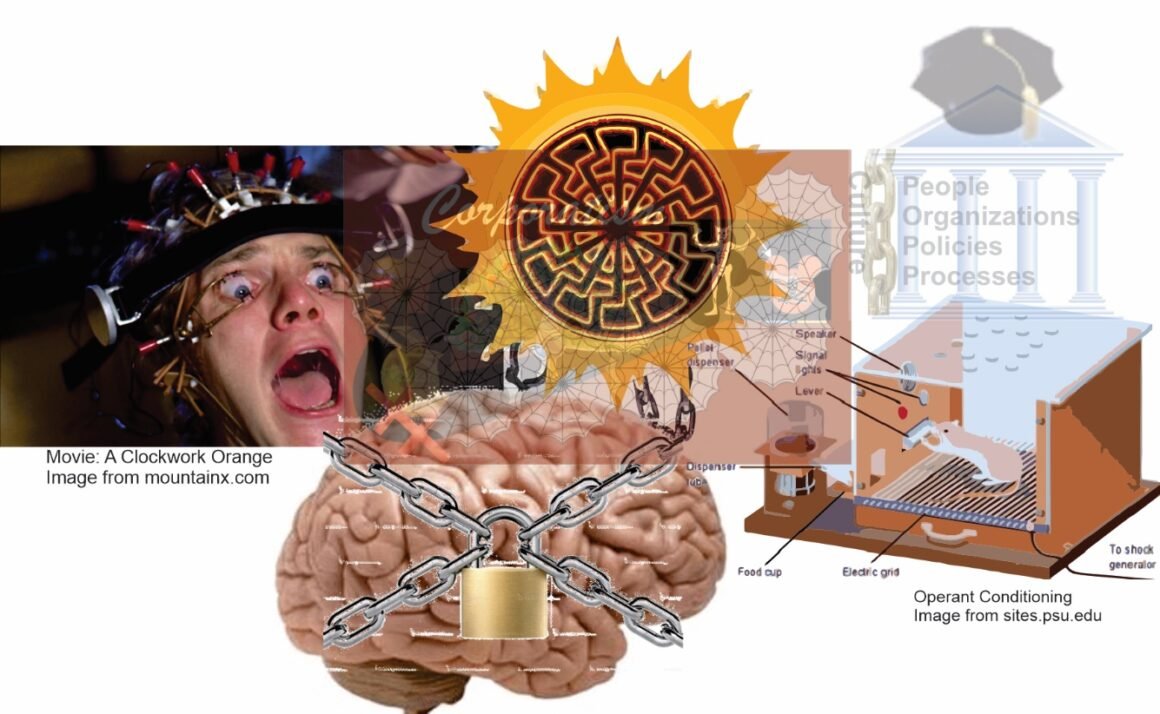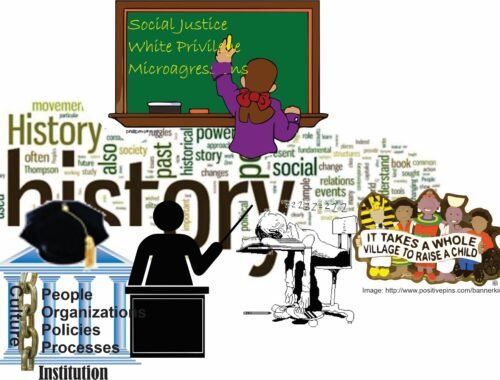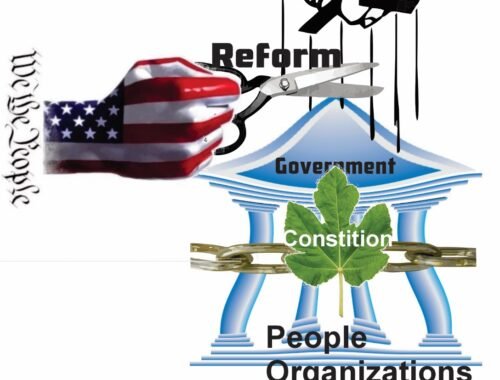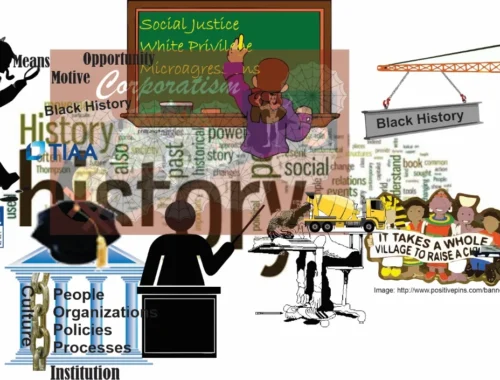
Re-constructing History, Part 9: Is the Education Institution a Cult?
In 1992, there was a spate of Satanic Ritual Abuse (SRA) allegations, many involving teachers. I bring this up not accuse teachers of SRA, but because the discussions of cults, False Memory Syndrome (FRM), and Recovered Memory (RM). FRM states that memories may be implanted into people’s minds and the victims believe the memories are real. On the other sides of the equation, RM states that some memories are so traumatic that the mind suppresses them they must be recovered through therapy.
The Education Institution learned about memory during this traumatic episode. They also learned about Operant Conditioning and other aspects of memory through academic research they apply to learning and behavioral modification. We studied this in several courses in my Education Doctorate (Ed.D.) As part 1 of this series notes, we even discussed the concept of re-constructing history to suit your purposes. See Organizational Re-membering: Rhetorical History as Identity Work for more details. The upshot is the Education Institution understands how to manipulate memory and behavior. They have been victims of it and advocates of it.
This brings us to a hard question. Does the education institution have cult-like tendencies? Boze Herrington in The Seven Signs That You’re In a Cult lists these signs. Since this article focused on religion, three of them are religiously focused, but we can readily shift the focus from religion to dogma. I have noted these changes in the table below.
| Cult Sign | Education Institution |
| Opposing critical thinking | It suppresses any contrary opinions or questions. It suppresses critical thinking and shuns those who question the dogma. Shunning often means firing a teacher and attacking students that question the dogma. |
| Isolating members and penalizing them for leaving | It claims to have special knowledge (America’s failings in social justice) and indoctrinates teachers, students, and parents in this knowledge. It sets students outside established norms. If students and teachers protest, the institution publicly attacks them, accuses them of racism, and fires teachers. |
| Emphasizing special doctrines outside |
It embraces an unproven dogma as an article of faith |
| Seeking inappropriate loyalty to their leaders | The leaders expect submission, especially from the parents. See the US Attorney General’s letter to the Director, FBI. (See part 3 of the Education Reform series) |
| Dishonoring the family unit | It seeks to take on traditional parental roles and attack the traditional concept of a nuclear family |
| Crossing |
Advocates to multi-generism and socialism |
| Separation from the |
Advocate that American history is wrong and must be replaced. American culture and institutions are based on the evils of slavery, racism and capitalism exploit the disadvantaged. |
There are other lists of cult attributes, but they all share a common core of the seven in the table. While calling an entire institution is a stretch, vast parts of the education institution do exhibit cult traits and have the expertise to engage in the manipulative behavior associated with cults.
So the next question was, “If the education institution exhibits cult behavior, can cult deprogramming techniques help break the cult?” I found a surprise. Most literature downplays the deprogramming efforts, except in one key area: there is a discussion of deprogramming the “cult of Trump”. Breitbart reported on 22 January 2021:
On Thursday, Vanity Fair published an interview with cult expert Steven Hassan detailing how to go about “deprogramming” Trump supporters, while arguing for a “massive education” effort involving the participation of schools, mental health professionals, law enforcement, media, politicians, and intelligence agencies.
So, an institution that exhibits cult tendencies of its own is called upon to deprogram Trump supporters accused of being cultists. If Trump supporters are cultists, then perhaps the democratic party voters that voted for Biden/Harris can be likewise be accused. Arguably, neither is qualified for their offices and has performed abysmally. We are on a dangerous and slippery slope when we accuse political parties and politicians of being cults. The term “cult” is a loaded word with negative connotative meaning. We to be very sure of our parameters and their assessment of them if we call something a cult.
But even if we do not call something a cult, examining it within a cult-framework may provide some insights into how to address it. This applies not to just the education institution, but to the Trump campaign. If the Trump campaign honestly looks at itself through the lense of the seven signs of a cult, it may learn something about itself and how to address Trump’s high negativity, especially among independent voters.
Margaret Singer, Ph.D. psychologist author of “Cults in Our Midst” stated:
Deprogramming–that is, providing members with information about the cult and showing them how their own decision-making power had been taken away from them.
Restoring critical thinking and effective decision-making needs to be the foundation of all reform and recovery efforts. It is the first cult sign listed in the table above and at the heart of the other six. It is the only viable way to ensure sustainable liberty and prosperity.






2 Comments
Pingback:
Pingback: